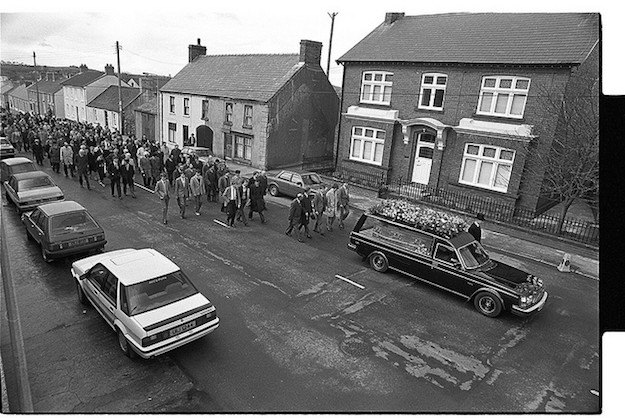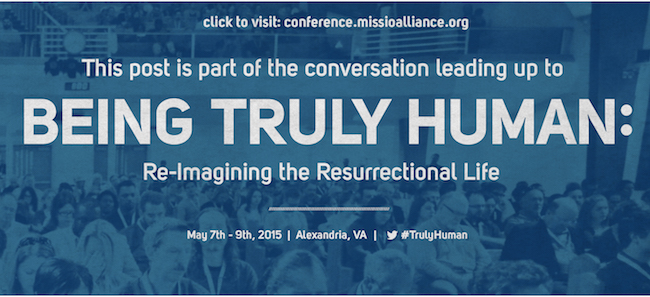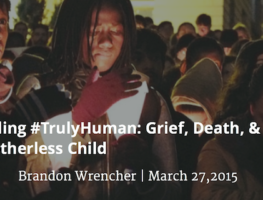My grandma died on Monday morning, February 2nd. She was 92 years old. My sister and I both traveled to be with our family for almost a full week. We told funny stories. We laughed. We took naps. We recalled painful memories and unfinished conversations. We visited the house that she lived in for sixty plus years, where my mom was a toddler. I remember sleepovers there, the kind where teeth are floating in a glass of Alka-Seltzer next to the bed. We cried complex tears.
When I last saw my grandma she said, “Preach at my funeral.” I was not sure I was up to the task to be Pastor Ty in such a moment but I honored her request by giving her eulogy. Eulogy: a speech that praises someone who has just died. How do you summarize nine decades of living in 10-15 minutes? How do you do it justice? I talked about how good she was being present with kids. I showed off her sense of humor and quick wit. She was active and worked hard. She was spontaneous and playful. She was a faithful student of Scripture and she loved her Sunday school class. I think I did a good job. I think she would have been pleased. Still, I had a nagging sense that a lot was missing. There are important stories that no one living knows or remembers. They are lost for now.
Is it normal to be at a funeral and be wondering about your own funeral? What stories will be chosen to capture the essence of your life? All of the stories about my grandma that I shared were shockingly unremarkable. When my grandma was living these stories, there is no way she would have thought, “This moment might be spoken about at my funeral.” She may not have even remembered these stories happening at all! But we remember and we are inspired to imitate her virtues. My sister had a hard time coming up with a story. What was most important about grandma could not be located in a concrete story, but in hundreds of tiny instances blurred together to form an inseparable and clear image. Maybe it is not the stories that matter but how a few stories can give us a window into a person’s true identity.
Ash Wednesday is a funeral preview for the Church. It is a day for checking in: What stories are we living? What composite picture is being formed? What virtues are we cultivating? What vices are malforming us? What fills our days? Who do we love? We hear the words: “Remember that you are dust, and to dust you shall return.” These words are a doorway into a more excellently lived life. A truly human life is still mortal. We are mortal. Remembering that we will die does not make us morbid, but it might make us wise.
In Spiritual Exercises, Ignatius of Loyola prescribes a method for discerning important life decisions by considering the present decision as if you were looking back at it from your deathbed. Psalm 90:12 says, “Teach us to number our days, so we might gain a heart of wisdom.” Christian hagiography (lives of the saints) is another way the Church has told stories of past lives for the purpose of imitation. Living close to our mortality is a means to cultivating courage, wisdom, humility, and integrity.
While we live in a world filled with death, the privileged have hidden death from view. In the process we have shut out one of life’s great teachers.
One more reason the privileged desperately need solidarity with the poor and oppressed.
—
Read more:
The Coming of God by Jurgen Moltman
Spiritual Exercises by Ignatius of Loyola [Image by Burns Library, Boston College, CC via Flickr]










Missio Alliance Comment Policy
The Missio Alliance Writing Collectives exist as a ministry of writing to resource theological practitioners for mission. From our Leading Voices to our regular Writing Team and those invited to publish with us as Community Voices, we are creating a space for thoughtful engagement of critical issues and questions facing the North American Church in God’s mission. This sort of thoughtful engagement is something that we seek to engender not only in our publishing, but in conversations that unfold as a result in the comment section of our articles.
Unfortunately, because of the relational distance introduced by online communication, “thoughtful engagement” and “comment sections” seldom go hand in hand. At the same time, censorship of comments by those who disagree with points made by authors, whose anger or limited perspective taints their words, or who simply feel the need to express their own opinion on a topic without any meaningful engagement with the article or comment in question can mask an important window into the true state of Christian discourse. As such, Missio Alliance sets forth the following suggestions for those who wish to engage in conversation around our writing:
1. Seek to understand the author’s intent.
If you disagree with something the an author said, consider framing your response as, “I hear you as saying _________. Am I understanding you correctly? If so, here’s why I disagree. _____________.
2. Seek to make your own voice heard.
We deeply desire and value the voice and perspective of our readers. However you may react to an article we publish or a fellow commenter, we encourage you to set forth that reaction is the most constructive way possible. Use your voice and perspective to move conversation forward rather than shut it down.
3. Share your story.
One of our favorite tenants is that “an enemy is someone whose story we haven’t heard.” Very often disagreements and rants are the result of people talking past rather than to one another. Everyone’s perspective is intimately bound up with their own stories – their contexts and experiences. We encourage you to couch your comments in whatever aspect of your own story might help others understand where you are coming from.
In view of those suggestions for shaping conversation on our site and in an effort to curate a hospitable space of open conversation, Missio Alliance may delete comments and/or ban users who show no regard for constructive engagement, especially those whose comments are easily construed as trolling, threatening, or abusive.